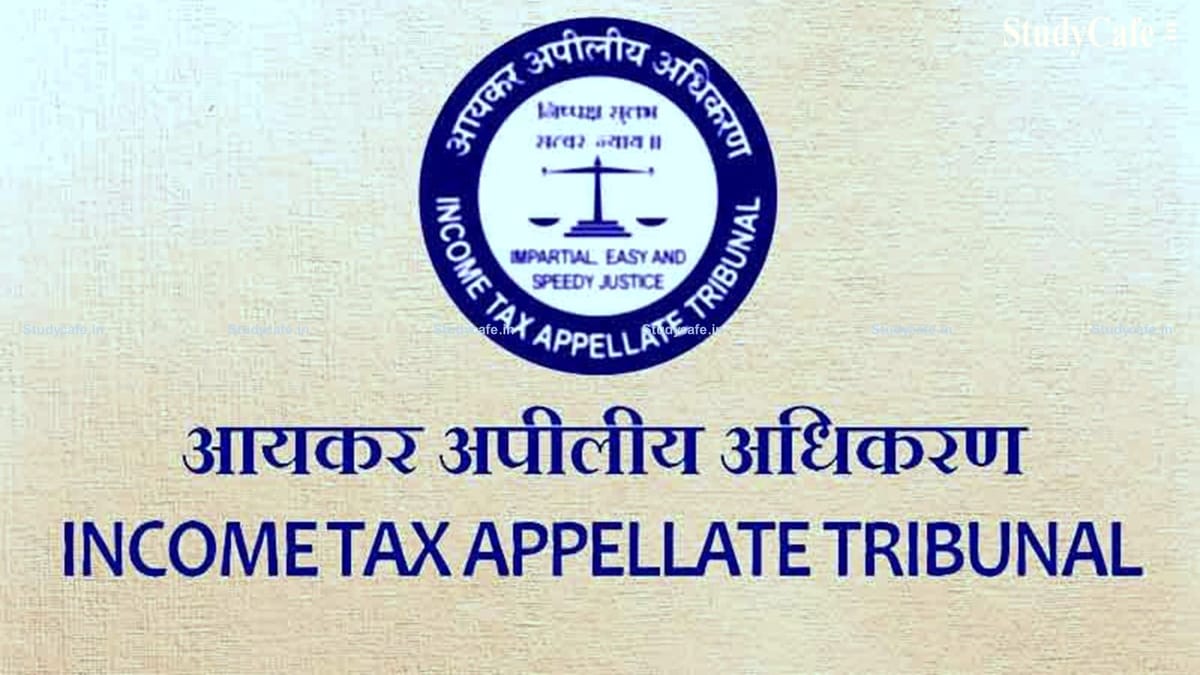Excess deficit set off against accumulated income should be treated as application of income for charitable purpose: ITAT
CA Ayushi Goyal | Apr 14, 2022 |

Excess deficit set off against accumulated income should be treated as application of income for charitable purpose: ITAT
The Income Tax Appellate Tribunal (ITAT Delhi), in the case of Shri Ram Sharnam Sabha Regd V/s. ITO sustained that the excess of expenditure in the earlier years can be adjusted against the income of subsequent year and such adjustment should be treated as application of income for charitable purpose.
In the present case, the assesse is a society, engaged in religious and charitable activities. This society is running Ashrams and Medication programmes and was duly granted registration u/s 12AA of the Income Tax Act, 1961 (The Act). The assesse filed its return of income for assessment year 2016-17 declaring a taxable income of Rs. Nil. The AO noticed that the assessee society was required toapply 85% of its income on the objectives of the society. As per Assessing Officer, accumulation of income in excess of 15% of the income is allowed subject to certain conditions. The AO noticed that the application of income fall short of benchmark of 85% at Rs.21,23,372/-. Therefore, he called upon the assessee to explain as to why the benefit of exemption claimed u/s 11(2) of the Act be given to assessee. The reply so filed by the assessee was not found satisfactory by the AO therefore, he proceeded to reduce the amount of Rs.21,23,372/- and made addition of Rs.21,23,372/- to the return of income.
Aggrieved against this, the assessee preferred appeal before Ld.CIT(A), who after considering the submissions, dismissed the appeal of the assessee.
ITAT in its order direct the AO to allow the claim of the assesse regarding set off of excess utilization of funds and accumulation of income and allowed the appeal filed by the assesse. It relied on the discussions contained in case of CIT v. Institute of Banking Personnel Selection (IBPS) [2003] 264 ITR 110 (Bom.) and allowed the appeal filed by the assesee. Hon’ble Mr. Justice S.H. Kapadia in Institute of Banking Personnel Selection (IBPS)’s case (supra ), said as follows:
“Now coming to question No, 3, the point which arises for consideration is : whether excess of expenditure in the earlier years can be adjusted against the income of the subsequent year and whether such adjustment should be treated as application of income in the subsequent year for charitable purposes? It was argued on behalf of the Department that expenditure incurred in the earlier years cannot be met out of the income of the subsequent year and that utilization of such income for meeting the expenditure of earlier years would not amount to application of income for charitable or religious purposes. In the present case, the Assessing Officer did not allow carry forward of the excess of expenditure to be set off against the surplus of the subsequent years on the ground that in the case of a charitable trust, their income was assessable under self-contained code mentioned in section 11 to section 13 of the Income-tax Act and that the income of the charitable trust was not assessable under the head “Profits and gains of business” under section 28 in which the provision for carry forward of losses was relevant. That, in the case of a charitable trust, there was no provision for carry forward of the excess of expenditure of earlier years to be adjusted against income of the subsequent years. We do not find any merit in this argument of the Department. Income derived from the trust property has also got to be computed on commercial principles and if commercial principles are applied then adjustment of expenses incurred by the trust for charitable and religious purposes in the earlier years against the income earned by the trust in the subsequent year will have to be regarded as application of income of the trust for charitable and religious purposes in the subsequent year in which adjustment has been made having regard to the benevolent provisions contained in the section 11 of the Act and that such adjustment will have to be excluded from the income of the trust under section 11(1)(a) of the Act. Our view is also supported by the judgment of the Gujarat High Court in the case of CIT v. Shri Plot Swetamber Murti Pujak Jain Mandal [1995] 211 ITR 293 Accordingly, we answer question No.3 in the affirmative, i.e., in favour of the assessee and against the Department.”
In case of any Doubt regarding Membership you can mail us at contact@studycafe.in
Join Studycafe's WhatsApp Group or Telegram Channel for Latest Updates on Government Job, Sarkari Naukri, Private Jobs, Income Tax, GST, Companies Act, Judgements and CA, CS, ICWA, and MUCH MORE!"